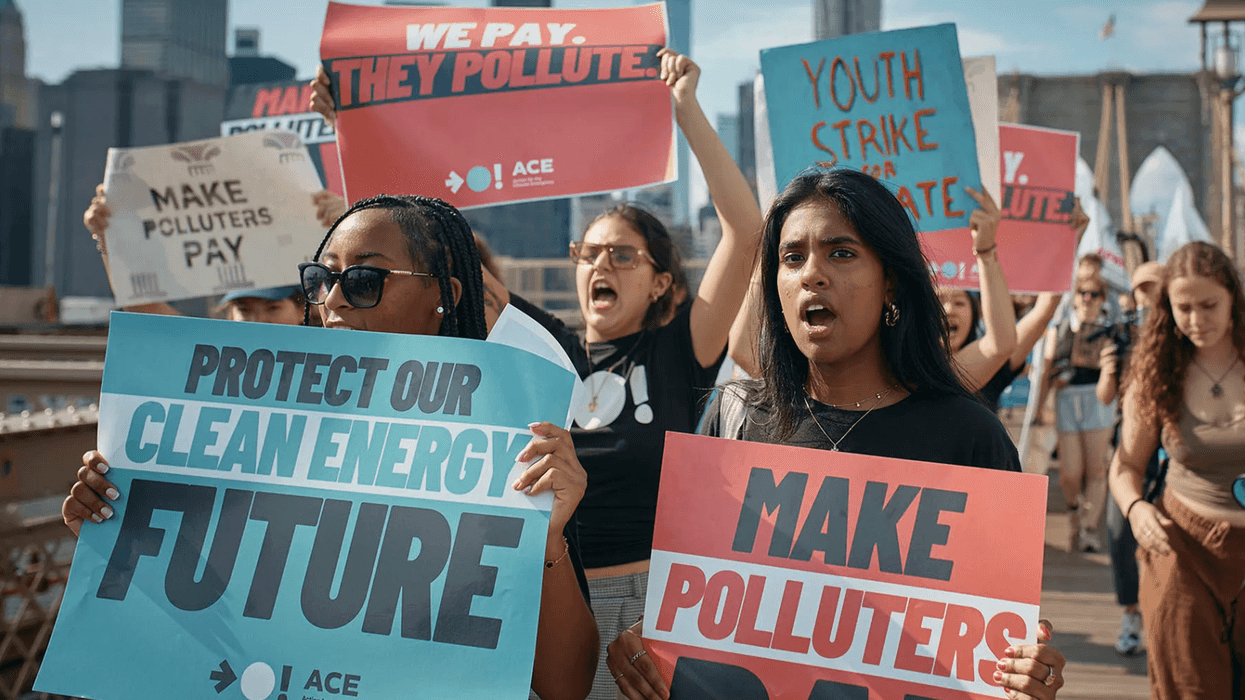Guillermo is the CEO of Ignite, a political leadership program for young women.
It’s good news that Instagram has launched stricter controls for teen accounts, strengthening privacy settings for those under 18. Underage users’ accounts are now automatically set to private mode. The platform is also implementing tighter restrictions on the type of content teens can browse and blocking material deemed sensitive, such as posts related to cosmetic procedures or eating disorders.
This all follows calls by Surgeon General Vivek Murthy for social media companies to use safety warning labels amidst rising evidence that social media could be negatively impacting youth mental health. As the leader of a national organization that works to empower members of Gen Z to get more involved in their communities, I've seen first-hand how youth mental health challenges — exacerbated by the Covid-19 pandemic and its accompanying challenges — have risen over recent years.
That said, we can't lay the blame for the youth mental health crisis solely at the door of social media companies. American society is facing significant challenges such as climate change, inequality, racism and mass shootings, and young people are frustrated with the lack of action from leaders around the issues they care about. These issues are causing young people to feel appropriate anxiety, and another important way to lessen it is for us to listen deeply and incorporate them into the leadership and future of this country.
Murthy's call for warning labels follows growing concern over the mental health and wellbeing of teens. A study published Feb. 13. by his office shows that American teenage girls are increasingly depressed, saddened and considering suicide. More recently, Miss USA resigned citing her mental health. A new study shows that Covid lockdowns may have accelerated brain aging, especially in girls.
There are too many alarm bells ringing to ignore. And young people are living in a world that would make anybody anxious. My organization found that more than half of young people get their news from social media. While they may be dependent upon social media for other things, which I agree could be a separate factor in their depression and anxiety, there is also a lot to be anxious about in the news, when you consider the state of the world.
For example, living in states with abortion trigger laws is associated with higher rates of depression and anxiety after the Supreme Court's overturning of Roe v. Wade. Online racism is also linked to post-traumatic stress disorder symptoms in Black youth. Climate change is affecting mental health everywhere. I do know that these are issue areas, along with mental health itself, that are emerging as critically important for young people themselves. They even place them amongst their top reasons for voting.
This spring and summer, I sat down with young people of college age in swing states across the country as part of a series of focus groups. My goal was to listen deeply to young people to try to figure out why they're so disillusioned with politics. We found that they feel unheard, and that they're also particularly anxious about getting involved when the political landscape is so polarized.
There is pressure to “pick a side,” and the impact trickles into Gen Z’s friendships and lives. They don't want to be ostracized from their friends if they speak up about issues they care about. Meanwhile, they feel the political parties do not adequately encapsulate their priorities or personal values. The resulting question for me goes beyond warning labels — which I do think are important. It's about how America meets this moment.
How do we have a conversation that engages young people, that acknowledges their anxiety and struggles, and that leads to their deeper engagement in reshaping our society as we move ahead together? I was pleased to see that the producers of Disney's “Inside Out 2” brought in teens to workshop anxiety as part of the teenage character's emotional life. We need to see hundreds more such efforts across the gamut of America’s civic, cultural, political and social life if we're to reverse the current trend of young people's disillusionment and alienation.
Amidst all this, I've found that social media has its benefits. One young woman I work with, who helps organize her peers around voting and democracy, found TikTok a great place to connect with other young people with similar interests. She even got a job working on redistricting issues after connecting with an organization through the app. TikTok is continuing to fight a battle over a possible ban related to national security issues. Those concerns may be legitimate, and the courts certainly seem to be leaning in that direction. But let’s not lose sight of the fact that young people are forming genuine democratic connections on the platform.
Social media use is not all good or all bad. We need to address its impact on all of us, and while a warning label is one step to creating awareness, we have to pair this with more listening and a collective willingness to create a safer way for young people to engage digitally. After all, if any of us were a teenage girl in 2024, we might be struggling as well, both online and in the real world.




















 Senate Committee on Commerce, Science, and Transportation ranking member Sen. Maria Cantwell (D-WA) (R) questions witnesses during a hearing in the Russell Senate Office Building on Capitol Hill on February 10, 2026 in Washington, DC. The hearing explored the proposed $3.5 billion acquisition of Tegna Inc. by Nexstar Media Group, which would create the largest regional TV station operator in the United States. (Photo by Chip Somodevilla/Getty Images)
Senate Committee on Commerce, Science, and Transportation ranking member Sen. Maria Cantwell (D-WA) (R) questions witnesses during a hearing in the Russell Senate Office Building on Capitol Hill on February 10, 2026 in Washington, DC. The hearing explored the proposed $3.5 billion acquisition of Tegna Inc. by Nexstar Media Group, which would create the largest regional TV station operator in the United States. (Photo by Chip Somodevilla/Getty Images)